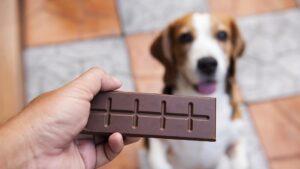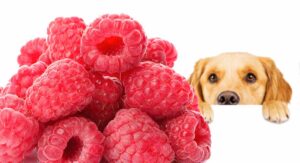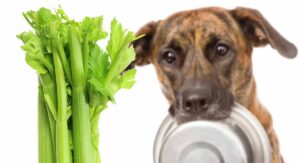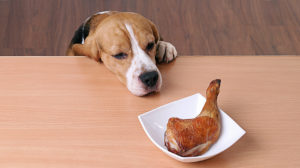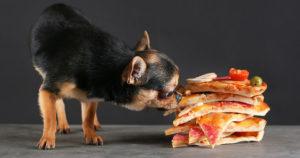Feeding a Pitbull puppy starts with finding a commercial or homemade diet that contains all the right nutrition for their life stages. Changes need to be made gradually, and the number of meals each day needs to reflect their age. The result is a diet that supports healthy growth, and […] Read More
Can Dogs Eat Graham Crackers?
Can dogs eat graham crackers? Yes, dogs can eat Graham crackers safely in small amounts. Graham crackers contain trace vitamins and minerals which are good for dogs. But, honey and cinnamon Graham crackers contain sugars which can cause obesity and tooth decay. Some Fun Facts About Graham Crackers Graham crackers […] Read More
Can Dogs Eat Chocolate, And If Not, Why Not?
Chocolate is not a safe treat for dogs. It contains caffeine and theobromine – compounds that are toxic to dogs. Some dogs are also genetically more vulnerable to chocolate poisoning than others. It is also possible for a dog to react badly to a mouthful, even after eating chocolate without […] Read More
Can Dogs Eat Raspberries – A Complete Guide To Raspberries For Dogs
People have been eating wild raspberries for thousands of years. So, can dogs have raspberries too? Are raspberries good for dogs? The short answers are, “Yes” and “A little bit.” Dogs can safely eat raspberries in small quantities. And they have some health benefits. Raspberries are low in calories but are […] Read More
Can Dogs Eat Asparagus – A Guide to Asparagus for Dogs
Can dogs eat asparagus? Asparagus is a healthy food for humans. So you might think that it’s great for dogs, too. But it’s a little more complicated than that. The simple answer to, “Can dogs have asparagus?” is yes, as long as you are giving your pup an asparagus spear. […] Read More
Can Dogs Eat Celery? Is Celery Good For Dogs Or Not?
Can dogs eat celery? It’s a common question. Vegetables and fruits are popular treats, but some of them are less healthy, and less safe, than others. But the simple, quick answer to this question is yes. Yes, dogs can eat celery. But it shouldn’t be a major part of their […] Read More
Can Dogs Eat Applesauce With Their Dinner Too?
Can dogs eat applesauce? Is applesauce good for your dog? Are there any benefits of dogs eating applesauce? What about drawbacks? Read this article to find out! Applesauce is a sweet treat loved by kids and adults alike and it’s one of the most popular ways to eat apples! But […] Read More
Can Dogs Eat Olives Safely or Are They Best Avoided?
Can dogs eat black olives? How about green olives? Are olives bad for dogs? What should you do when one of your furry friends eats an olive? We get it. Trying to figure out what your pup can and cannot eat can be puzzling. There are just so many different […] Read More


